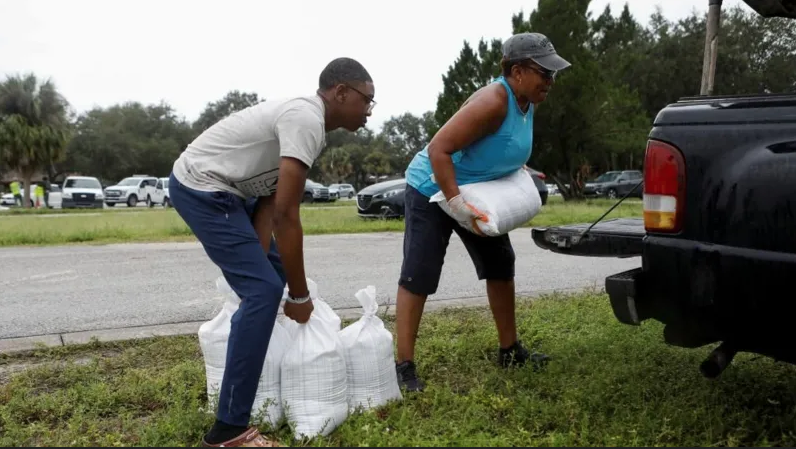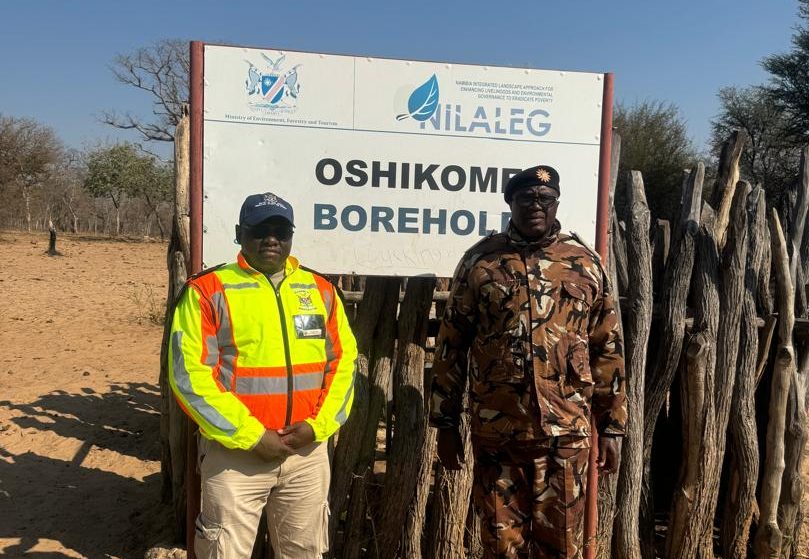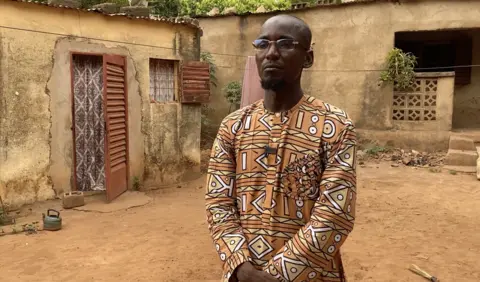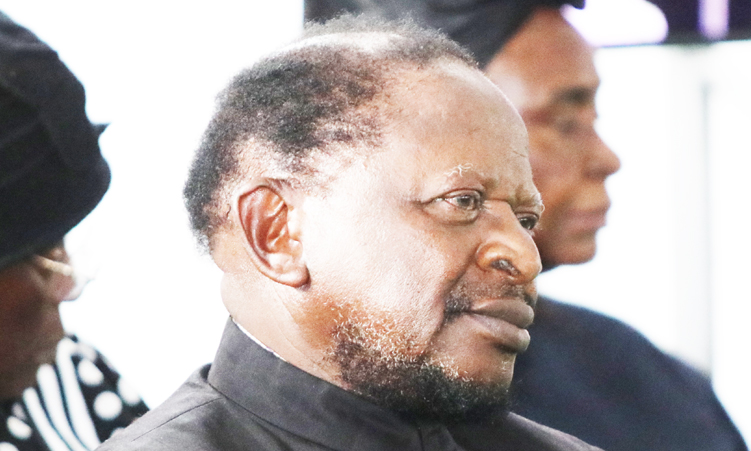ANC drops to 40.2% in support poll as Zuma’s MK campaigns to cannibalise ruling party votes
Written by on April 28, 2024
Opinions differ wildly about whether the uMkhonto Wesizwe party and its leader, Jacob Zuma, should be taken seriously. Some believe its manifesto is a joke, but others say it will attract many voters. One thing is certain, though: in KwaZulu-Natal, all bets about possible election outcomes are off.
Thirty years after Nelson Mandela swept the ANC into power, the former liberation movement is being torn apart by its fourth major splinter group, which threatens to imperil South Africa’s constitutional democracy.
Saturday, 27 April, was the 30th anniversary of freedom from apartheid, but a month before the elections, the ANC is scrambling against former comrades in its most serious battle yet.
Since the ANC has been in power, disaffected leaders have broken away to form the United Democratic Movement, the Congress of the People and the EFF.
Now, the uMkhonto Wesizwe (MK) party, led by former president Jacob Zuma, is eating the ANC from within as its members defect to him, or silently hedge their bets.
This week, the man synonymous with State Capture continued his dogged legal fight with the Electoral Commission of South Africa (IEC) over his participation in the elections.
ANC supporters carry a mock coffin of former ANC president Jacob Zuma’s new party, uMkhonto Wesizwe (MK), during the ANC election manifesto launch at Moses Mabhida Stadium on 24 February 2024 in Durban, South Africa. (Photo: Per-Anders Pettersson / Getty Images)
Reports that he had collapsed from fatigue didn’t stop the online launch of MK’s controversial election manifesto, described as a “crazy” document that harks back to apartheid-era executive government. The widely criticised manifesto favours “parliamentary supremacy”, extensive state intervention in the economy, land expropriation and increased powers for traditional leaders.
Former minister Roelf Meyer, who helped to usher in South Africa’s post-apartheid Constitution with Cyril Ramaphosa in 1996, described MK’s manifesto as “mindless”.
“It is ridiculous. In fact, it is plain stupid. It would take us back to apartheid when there was parliamentary sovereignty. It is totally crazy. It is hard to think who advises Zuma and where his money comes from. That would probably explain the content of the manifesto.”
Roelf Meyer, former South African politician and Cabinet Minister of the National Party who acted as negotiator in the transition to South Africa’s democracy. (Photo: Supplied)
Constitutional expert Professor Karthy Govender said: “This Constitution, signed by Nelson Mandela in Sharpeville, is a recognition of the sacrifices that people made to bring us democracy. The Constitution is South Africa at its best. It is world-renowned and was central to transforming our country from a racist oligarchy. It helped us avoid a cataclysmic race-based conflict.
“The Constitution allowed for the Zondo Commission and other remedial measures to deal with corruption and abuse of power.”
A former ANC minister, who was one of the architects of the Constitution, told Daily Maverick: “If it wasn’t for the Constitution, MK wouldn’t be participating in the elections or have the opportunity to publish this stupid manifesto.
“It’s a bit of a joke but, unfortunately, it will attract people because nasty stuff appeals to tribalists, rabid bigots, the type of right-wingers who are emboldened around the world right now – people who are anti-gay, anti-minorities, anti-immigrants.”
Wayne Duvenage, CEO of the Organisation Undoing Tax Abuse, called the manifesto “ludicrous” and “mind-boggling”.
Govender said threats to the Constitution have to be resisted. “It is one thing to sound off, but these things can gather momentum and we should not allow politicians to try to change the Constitution because it doesn’t suit their behaviour when it is corrupt, inept, slothful and inconsistent with the Constitution. Rather, they should change their behaviour to suit the Constitution.”
Jacob Zuma married his fifth wife on 4 January 2010 at his rural Nkandla homestead in KwaZulu-Natal. Zuma shows off his traditional dancing skills during the ceremony. (Photo: Gallo Images / YOU /Tumelo Leburu)
Nolundi Luwaya, a senior researcher at the University of Cape Town’s Land and Accountability Research Centre, said some parts of the MK manifesto “made the hair on the back of my neck stand on end”, particularly those related to traditional leadership.
“The ANC, especially under Zuma, advanced notions of customary law that were not aligned with the people living under those systems, and sometimes imposed traditional leaders. You ended up with situations where human rights were violated.”
MK’s manifesto relies on a wishful model of a benevolent leader who acts for the people, she added. “This is naive and mimics the same kind of limited world-view held by the apartheid state that carved up neat little harmonious tribes. [It is] an ubuntu, Bantu identity that is problematic. It talks about a bygone era of chauvinism that is deeply patriarchal. Try being an independent woman or gay in that world.”
Meyer equated MK’s manifesto with apartheid, when individual rights were not protected. “The Constitution is a safeguard against that. The people who drafted the MK manifesto have no understanding of what we went through to transition to a constitutional framework that is the supreme law of the land. We assumed Zuma supported that constitutional process.”
But will the incendiary document hinder Zuma’s chances at the polls next month or prove a masterstroke and deliver an election bonanza for him in jittery KwaZulu-Natal?
Though MK’s manifesto might be outlandish, its opponents are divided on its impact.
This week, global polling company Ipsos said its latest survey showed May’s elections would be marked by “a desire for change”, with uncertainty matching 1994 levels.
MK had “a profound effect on the distribution of support” among parties, and the ANC was “struggling to impress voters”. Ipsos put ANC support at 40.2%, DA at 21.9%, EFF at 11.5%, MK at 8.4% and ActionSA at 3%.
DA leader John Steenhuisen said MK is a significant threat. His party’s polls give MK about 30% support in KwaZulu-Natal and 13% nationally. “They are taking over whole structures of the ANC. People are scared of MK for good reason. This is the radical economic transformation that Zuma tried to bring earlier, but on steroids now. The manifesto is Chavez-style,” he said, referring to the Venezuelan military dictator.
“It is a joke, but the problem with political jokes is that sometimes they get elected. MK should terrify people. Zuma is not a fringe politician. He is a formidable campaigner with massive brand and name recognition. He is wildly popular. Ironically, because of his failed presidency, he resonates with people who feel excluded and live in grinding poverty. He’s like Trump; he plays the victim and that is when he is at his most dangerous. He says, ‘The IEC doesn’t want me to stand for elections.’”
Steenhuisen questioned how MK is funding its election campaign.
“Very little money has been declared, and this party was not started a few months ago. It has branded vehicles, big posters, billboards, expensive T-shirts and an organised system. This points to very good funding. My guess is his money is coming from Russia. This is not a mom-and-pop outfit. We are taking it very seriously.”
Steenhuisen’s Multi-Party Charter partner, ActionSA leader Herman Mashaba, disagreed and dismissed MK as a factor outside KwaZulu-Natal. “Our country is at risk, but don’t waste a minute reading MK’s manifesto. Look at the growth of the Inkatha Freedom Party. The ANC is in for a shock. I can see us and the DA forming a coalition with the IFP in KZN. The ANC, MK and EFF are all the same thing.”
ActionSA’s leader in KwaZulu-Natal, Zwakele Mncwango, said many people are considering voting for MK but do not know what they would be voting for. “These guys would collapse our province. The unrest in July 2021 showed that. They are a criminal enterprise that has broken away from another criminal enterprise. It exists only to serve the interests of Zuma, and he will trade off with anyone as long as they scrap any prosecution against him. He will strike a deal with the ANC.
“It is a two-horse race in KZN: either the Multi-Party Charter of IFP, ActionSA and DA, or an MK-ANC-EFF coalition.”
The ANC in the province didn’t want to be drawn on MK. ANC provincial secretary Bheki Mtolo said: “The more we don’t comment on MK’s tribal maleness, the better. Criminals, by their very nature, hate the Constitution, the rule of law and the independent judiciary.”
But during Ramaphosa’s recent visit to KwaZulu-Natal, he reportedly urged ANC leaders to “put their shoulders to the wheel”, warning that the election “is ours to lose”.
Zuma, an avowed traditionalist and Zulu chauvinist, will try to make inroads into the IFP. Party spokesperson Mkhuleko Hlengwa, however, said the IFP is at the forefront of traditional leadership. Though the IFP might “improve” the Constitution, it would never remove it. As for MK? “We do not pontificate on the performance, or lack thereof, of other organisations or whether or not they will form coalitions.”
Steenhuisen said his worry is “an MK-EFF reverse takeover of the ANC and a purge of the constitutionalists”.
“That will be doomsday for South Africa. Capital will take flight, and those who can’t leave the country will live in misery. The MK manifesto is a cut-and-paste of Chavez or Zanu-PF. This is a make-or-break election.”
There is increasing evidence of MK cannibalising the ANC. An ANC insider told Daily Maverick: “A lot of ANC people are uncomfortable. They are quietly supporting MK or advising them because some idiots surround Zuma. One of [former eThekwini mayor] Zandile Gumede’s guys, Sandile Mngadi, has moved to MK. The big lady won’t jump now.”
Uncertainty over allegiances has created a feeling of uneasiness in both parties. In February, former KwaZulu-Natal provincial government director-general Nhlanhla Ngidi left the ANC to join MK. “The old man [Zuma] invited me to be MK coordinator in KZN,” he told Daily Maverick.
Ngidi said initially there was “a big problem with capacity” in MK, but “things started to take shape, and there was a real belief that we could be the biggest party in KZN or put MK in a strong position if there are coalition talks”.
Ngidi heard rumours that he was regarded as an ANC spy and, on 15 April, he received a letter removing him as provincial MK coordinator. He puts it down to jealousy. “I am not an ANC spy and I challenge anyone to prove that.” He is still number one on MK’s provincial election list and awaits a meeting with Zuma.
Ngidi said “thousands” of ANC members have left the party for MK, but suspicion is rife in both parties. “There is a lot of paranoia. There is very little trust in the ANC and people are waiting.”
Independent researcher Glen Robbins says MK has positioned itself to attract disaffected voters by promoting empowerment and land issues.
“The approach is very Trumpian. They want to broaden their base by tapping into people who have built audiences. But their candidates aren’t wedded to any principle and are clustered around Zuma.
“Like Trump, he doesn’t want to face criminal charges. MK will be a place to go if the National Prosecuting Authority is after you. There is a lot of sympathy for Zuma among ANC members and a strong connection between them, MK and EFF members. They share WhatsApp groups, and many ANC members are hedging their bets and keeping their options open.”
In the 2019 elections, the DA and IFP in KwaZulu-Natal each got 14%, the EFF 9% and ANC 55%. Elections analyst Wayne Sussman says the province’s poll outcome is “extremely uncertain”.
“This election is very challenging to assess: are we catching MK on the way up or down? It will take votes from ANC, IFP and EFF. The leading party in KZN will be MK or the ANC, not the DA or the IFP. The placing between the first four could be very close.”
Political analyst Dr Imraan Buccus said, like the EFF, MK uses left-wing rhetoric to mobilise a similar conflagration of interests to the fascists in Europe of the 1930s.
“We are also likely to see a rejection of legal and rational forms of politics in favour of charismatic politics.
“South Africa is in such a deep economic and political crisis, made concrete to us all by mass unemployment, load shedding and the ANC’s failure to lead. It is logical to assume Zuma’s populism has the ideal context to thrive.”
The Mapungubwe Institute for Strategic Reflection produced a report on the 2019 elections and noted a shrinkage of centre politics in favour of voting shifts to the far left and far right. Some fear this creates fertile ground for Zuma and his sponsors.
Mapungubwe analyst Susan Booysen said MK’s manifesto doesn’t threaten constitutionalism, which is “widely entrenched in the mainstream and is a shining light of how to move beyond fallible politicians”.
“Constitutionalism is a huge part of our political operation. I don’t think Zuma’s little scare is something to worry about. People run to the court, especially when they are bogged down in coalition politics.”
As for MK’s power and prospects, Booysen said there isn’t too much to go on.
“Zuma has always been embedded in Zulu nationalism and traditional leaders as part of that cultural orientation. It is natural that he turns to that constituency.
“If his efforts turn out to be sustained, that will be concerning. It is not a national thing now, but if it gets bigger wings, that would be concerning and imply a big turn in South African politics.”
MK’s manifesto launch comes during heightened security concerns about the polls in KwaZulu-Natal.
Violence monitor Mary de Haas said the manipulation of traditional leaders in the province is historical, and Zuma panders to this constituency.
Though interparty rivalry hasn’t resulted in serious pre-election violence, people are skittish.
“This is real and understandable given KZN’s history, the July 2021 riots and the factionalism of the ANC.” DM
The post ANC drops to 40.2% in support poll as Zuma’s MK campaigns to cannibalise ruling party votes appeared first on The Namibian.




